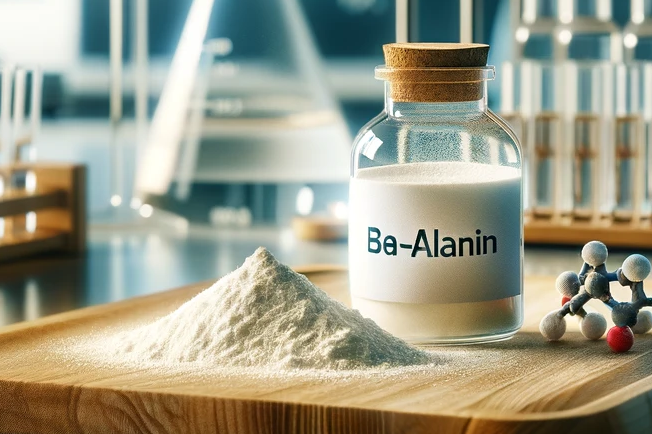Carnitine

What is carnitine?
Carnitine is an amino acid derivative that is formed from the essential amino acids lysine and methionine. The body can produce carnitine itself, but needs vitamin C, iron, niacin and vitamin B6 to do so. Carnitine is mainly found in red meat, but also in smaller quantities in dairy products, eggs, fish and vegetables.
Carnitine has various functions in the body. The most important is the transport of long-chain fatty acids into the mitochondria, the power plants of the cells. There the fatty acids are burned into energy. Carnitine therefore helps to burn fat and generate energy. Carnitine can also remove excess fatty acids from the mitochondria and thus prevent the accumulation of harmful metabolic products.
Carnitine also has antioxidant properties and can neutralize free radicals that can cause cell damage. In addition, carnitine can support heart function by improving blood flow and lowering blood pressure. Carnitine can also support muscle function by increasing muscle strength and reducing muscle fatigue.
How does carnitine work in dogs?
Dogs need carnitine for normal energy metabolism and healthy heart and muscle function. A lack of carnitine can lead to various problems, such as
- Heart failure: the heart cannot pump enough blood through the body and supply the organs with sufficient oxygen and nutrients.
- Muscle weakness: The muscles cannot muster enough strength and tire quickly.
- Weight loss: The body cannot burn enough fat and loses weight.
- Fatty liver: The liver stores too much fat and can no longer fulfill its detoxification function.
Some dog breeds are more susceptible to carnitine deficiency than others. These include Boxers, Dobermans, Cocker Spaniels and Labrador Retrievers, for example. Older dogs or dogs with certain diseases such as diabetes or renal insufficiency may also have an increased need for carnitine.
To prevent or treat a carnitine deficiency, dogs can be supplemented with carnitine. This can alleviate symptoms and improve quality of life. However, you should always consult a vet before giving your dog a supplement. The vet can measure the carnitine level in the blood and determine the correct dosage.
What are the pros and cons of carnitine for dogs?
Advantages:
- It promotes fat burning and can help with obesity.
- It can improve performance and endurance in athletic dogs.
- It can improve heart function in dogs with dilated cardiomyopathy
- It may support liver health in dogs with liver disease.
Disadvantages:
- It may cause nausea, vomiting or diarrhea if given in excessive doses.
- It may interact with other drugs, e.g. anticoagulants or thyroxine.
- It may interfere with the action of insulin and lower blood glucose levels.
- It can reduce muscle mass if administered without sufficient protein intake.
If you notice any signs of hypersensitivity or poisoning in your dog, you should see your vet immediately. We are not a substitute for a vet, but we try to be as accurate as possible. Every dog reacts differently and we recommend you get a second opinion or consult your vet if in doubt.
Stay healthy and take good care of your four-legged friend!😊
Similar to Carnitine
Creatine is a naturally occurring organic acid found in small amounts in certain foods such as meat and fish and is produced in the bodies of mammals, including humans and dogs. It plays a central...
Taurine is an amino acid that the body can produce from other amino acids. Taurine is involved in many processes in the body, such as the formation of bile acids, regulating the heartbeat,...
Beta-alanine is a non-essential amino acid, which means that the body can produce it itself. It is mainly found in meat and fish, where it is bound to other amino acids. The most important compounds...
Arginine is an amino acid that is involved in the formation of proteins. Proteins are the building blocks of life and fulfill many important functions in your dog's body. Arginine is an essential...



